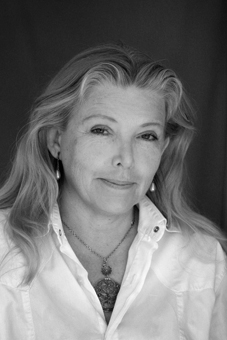Carolyn Hamilton

In the 1980s, at the beginning of my academic life, I attempted a thesis on power and authority in the Zulu kingdom under Shaka. It was received well enough, but I came away from the exercise concerned about my sources and the complex entanglements in which they were involved.
I spent the next ten years of my research life probing those entanglements and published Terrific Majesty: The Powers of Shaka Zulu and the Limits of Invention (Harvard University Press) in 1998. At the time South African Marxist historian reviewers rued what they regarded as my turn to ‘postmodernism’. This surprised me since the book was an attempt to understand the complex interplay over time of political, academic and public discourses and practices that shaped, and were shaped, by the archives used in my original thesis. Terrific Majesty was an enquiry into the making of aspects of the archive of Shakan times. I regarded it as a prudent methodological prerequisite to trying to write about the early Zulu kingdom. It was, if anything, a bit prissy and conservative in its historical concern, rather than redolent in postmodern excess.
I felt reasonably sure that I knew enough about political and academic discourses and practices to explore those aspects of my concern. After all, I had a large body of research by other scholars to help me there. But the notions of 'archive' and 'public' were, at the time, less well served by existing scholarly analysis. They became increasingly strange to me and I became uncertain about them, in the way that anthropologists do about such things. (And by then I had come to value anthropological perspectives, not for what they offered on the non-western societies in relation to which they were developed, but rather for the perspectives that they offered on the taken-for-granted aspects of disciplinary practices and habits of thinking.) 'Archive' and 'public' thus became the focus of the next series of projects which I initiated: the Refiguring the Archive exercise (see C. Hamilton et al, Refiguring the Archive, 2002); the five year-long Constitution of Public Intellectual Life Research Project (http://www.apc.uct.ac.za/apc/projects/constitution ), its ongoing successor forum, the Public Life of Ideas Network (http://www.apc.uct.ac.za/apc/projects/public-life-of-books ); and the Research Initiative in Archive & Public Culture (http://www.apc.uct.ac.za ) which knits together work on both archive and public discourse.
My most recent projects are contributions to the development of the Digital Humanities. Chief amongst these is my Five Hundred Year Archive project (http://www.apc.uct.ac.za/apc/research/projects/five-hundred-year-archive ) which is involved in the development of a range of innovative digital archival tools designed to support enquiry into the southern African past before colonialism.
Many of the projects that I have worked on have utilised insights from other disciplines and from humanities practices beyond the academy. At a time when historical writing is rarely collaborative, I have found that the impetus for challenging assumptions and identifying congealed disciplinary practices comes from working with others. I am committed to collaboration in the name of expansive scholarship and generative enquiry.
I have had the good fortune to worry about sources, archives, the public life of ideas and many other things in the company of boldly inquiring and imaginative graduate students, from across a range of disciplines. The challenges they offer me, and that they face in pursuit of their ideas, have prompted me to think a great deal about the nature of research development, especially in a transitional context like contemporary South Africa. Issues concerning research development and post-graduate pedagogy are increasingly of as much concern to me as the troublesome entanglements that I have researched.
Books: Babel Unbound: Rage, Reason and the Revolutions of Public Life (2020, WUP); Tribing and Untribing the Archive (2 vols. 2016. UKZN Press);); Uncertain Curature: In and out of the Archive (2014, Jacana); Cambridge History of South Africa (2012, CUP); Refiguring the Archive (2002, Kluwer); Terrific Majesty: the Powers of Shaka Zulu and the Limits of Invention (1998, Harvard), and The Mfecane Aftermath (1995, WUP).